If you're a frequent visitor to Healthify, why not share our site with a friend? Don't forget you can also browse Healthify without using your phone data.
Loneliness
Key points about loneliness
- Loneliness is a painful feeling that comes from feeling disconnected from, or lacking, desired or important relationships.
- We all have times when we feel lonely, but adults aged over 65 and young people aged 15–24 are most at risk.
- Long-term loneliness can affect your mental wellbeing and also increases your risk of physical health conditions such as heart disease, type 2 diabetes, arthritis and Alzheimer’s disease.
- The good news is that there is a way out of loneliness through steps you can take yourself and support to help you.
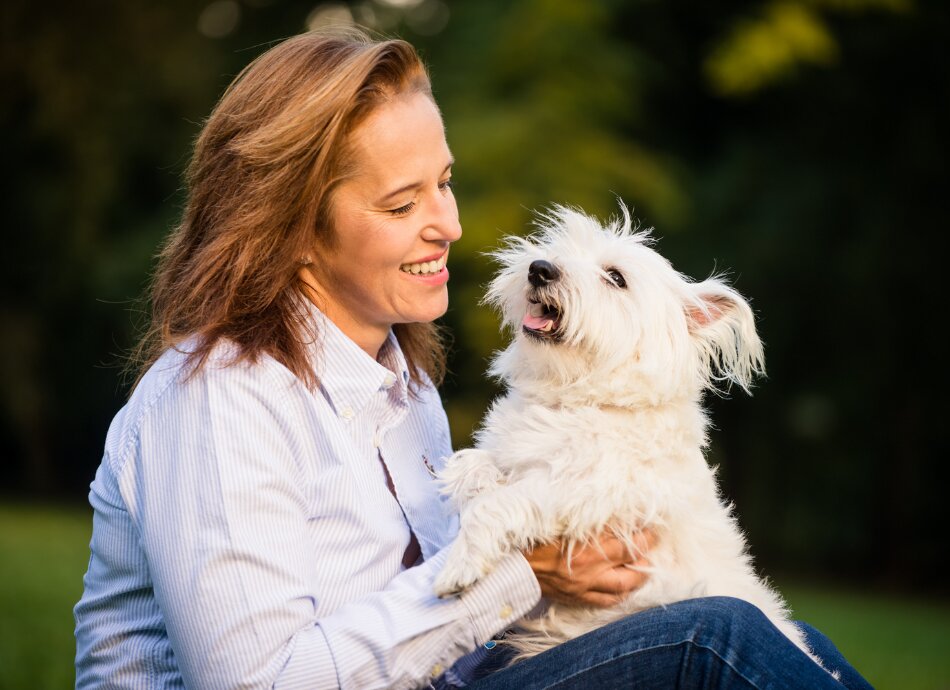
Loneliness is a painful feeling that comes from feeling disconnected from the important relationships you do have, or from not having relationships you would like to have. Even if you have lots of social contact you can still feel lonely in a relationship or in a crowd.
It’s different to solitude which is about being alone, but feeling content with that. Solitude is a positive state, and you can feel its positive benefit. However, loneliness has been shown to be a precursor to depression and some other physical and mental illnesses.
Social isolation – having little or no social contact – can be a choice. Or you might feel socially isolated and wish for more social contact than you have.
Sometimes you can feel lonely even when there are other people around. This happens when you aren’t getting your need for connection met from those people.
Some signs of being lonely can include feeling like:
- you are not “in tune” with others
- your relationships aren’t meaningful
- you do not belong
- you don’t have a group of friends
- no one understands you
- you don’t have shared interests with others
- there is no one you can turn to
- you’re alone even when surrounded by others
- you doubt yourself and your own worth
- you get burnt out and tired from trying to be social
- you're generally feeling unwell
- you want to give up and just withdraw from others.
As an older adult who is lonely, you may:
- withdraw from previous activities you enjoyed because you can’t hear or see so well anymore
- focus almost solely on your health issues and increase your medical visits
- go without a few meals because it feels too hard to go outdoors, and nothing seems safe anymore
- become intolerant of people as you feel they are patronising you
- be tearful when your family visits, feel overwhelmed with joy at them being there and feel sadness it’s such a short time
- miss the companionship of people you loved who have passed away and not see the point of engaging with the people around you.
As a young person who is lonely, you may show different signs. These can include:
- missing school
- spending long times alone in your room
- feeling unusually bad tempered and irritable
- becoming hooked on social media, or avoiding social media altogether.
You may also engage in type of behaviour that you think might help take the pain of loneliness away, but that actually make things worse. These could include:
Loneliness has many different causes. It's often linked with things that could prevent you spending time with other people:
- Living or working alone without other ways of connecting with people.
- Retirement or a major change in life role (eg, children leaving home).
- Illness or disability.
- Losing someone, such as from a relationship break up, separation or death.
- Moving to a new area, job, school or university.
- COVID-19 restrictions.
- Social anxiety (social phobia).
Loneliness can also be a symptom of mental health issues such as depression, and social isolation and withdrawal can be an early warning sign of deteriorating mental health.
There are 3 types of isolation that can contribute to loneliness – emotional, social and physical:
- Emotional isolation is being unable or unwilling to share your emotions with others.
- Social isolation is not having connection to or belonging to a social network.
- Physical isolation is living alone, or in some other way being mostly on your own.
Feeling lonely affects your overall wellbeing and your self-esteem. This is because you may feel unwanted, unliked or unloved, undesirable, insignificant, despairing, insecure or abandoned. If you feel like this, you might withdraw even further from those family/whānau members and friends who would make you feel less lonely.
This can become a cycle because, as you become more lonely, people around you might not reach out to you for meaningful connections. This can lead to chronic loneliness, which can put you at risk of poor mental and physical health.
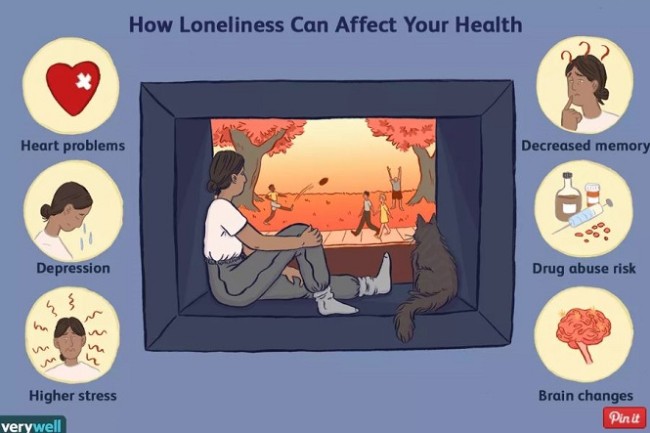
Source: Very Well Mind(external link) 2020
Chronic loneliness is associated with low levels of physical activity. It can also increase the production of stress hormones and affect your sleep, which leads to weakened immunity. These factors then contribute to poorer physical health, increasing your risk of conditions such as high blood pressure, heart disease, type 2 diabetes, arthritis, Alzheimer’s disease and stroke.
Loneliness can be a by-product of the symptoms of mental illness, where you may feel stigmatised or cut off from others. In turn, it also can lead to mental health concerns including anxiety, substance abuse problems, depression and others.
For some people, loneliness can be an early warning sign that your mental health may be deteriorating. Withdrawal that comes from feelings of loneliness may also have a negative impact on your health, or undermine your resilience to existing health conditions.
The good news is, there are things you can do to overcome your loneliness.
- It does require a conscious effort on your part to make a change. But it’s worth it – making a change can make you happier and healthier. It can even mean you can have a positive effect on others who may need you to reach out to them.
- Often the best place to start is by taking steps towards wellbeing that make a difference in how you think and feel.
Recognising that you feel lonely is a sign that something needs to change. Like grief, remorse, anxiety and all other negative emotions, with loneliness there is a way through.
Just as you can start an exercise programme to gain strength and improve your health, you can overcome loneliness through small steps that build your emotional strength and resilience. Don’t try to change too many things at once – just take it a little at a time.
Find the first small step to take in these areas:
- Taking care of your physical health.
- Looking after your mental wellbeing.
- Reaching out to others.
- Getting help if you need it.
Take care of your physical health
Even if you don’t feel like it, taking care of your physical wellbeing gives you more energy to address your loneliness.
Make it a priority to go for a walk or do some kind of exercise each day, get plenty of sleep and eat a balanced diet that gives you the nutrients you need. Pick one thing you would like to improve and set yourself a small goal to start. It might be to go for a 20 minute walk each day, go to bed half an hour earlier or add an extra vegetable to your dinner each day. You can get some ideas to help you, with these sleep tips, information on being active and healthy eating basics.
If you are using alcohol or recreational drugs to numb your feelings of loneliness, changing this might be a good place to start. If you need some support with this, phone the Alcohol Drug HelpLine(external link) on 0800 787 797. Read more about harmful drinking, addiction and methamphetamine addiction.
Look after your mental wellbeing
Take some time each day to meditate or go for a walk. Learning mindfulness techniques, practising gratitude and knowing how to manage stress or anxiety can all help with boosting your wellbeing. Finding something that matters to you, such as an issue, a hobby or a community group or action can also give your wellbeing a boost. See the Mental Health Foundation's five ways to wellbeing(external link) for more ideas.
Sometimes when a person feels lonely, it may also be linked to not doing things that give them a sense of meaning or purpose. Connecting to something that gives you this meaning can therefore reduce loneliness. If you are interested in social justice for example, volunteering at a local foodbank may increase your sense of connection and purpose in the world.
Reach out to others
Spending time with other people can help stop you from feeling lonely and give you the chance to share experiences, thoughts and ideas. Keep in mind that sometimes there are opportunities for social contact you may not respond to when you feel lonely. But these opportunities can be part of the way forward. Here are some tips:
- Respond to every outreach from someone else by replying to the email, answering the phone or front door, or accepting an invitation to do something.
- Take it up a step by upscaling the contact. If someone emails, reply with a phone call. If someone phones from time to time, suggest that next time you video call. If someone calls, suggest a catch-up in person. If you catch-up with someone once, make it a regular thing.
- Create opportunities. If others aren’t reaching out to you, you will need to look for ways yourself. Start small by just getting used to being around other people. Walk around your local town centre and nod and smile to people as you walk past them. Sit in a café and people watch. Go to the local library and browse books.
- Take the chance to make small talk with the people you encounter in your daily life and outings. If you started with that smile, next time you see the same person, greet them. Before long, you might be able to make small talk about the weather or a shared book. See who is responsive and build on that.
- Join a group, go to a course, volunteer to help someone else. These may feel like bigger steps, but it can be easier to connect with others in a structured environment rather than at a free-for-all social event. Start with a one-off event that only lasts for a short time, eg, a talk or short workshop on something that interests you, or help out for a couple of hours at a local event (behind the scenes can work well). An online group can be an easier way to engage with a more social environment.
- Try to expect the best rather than focus on any negative experiences you may have had. As you try these approaches, look out for people who share similar attitudes, interests and values with you. These can be the building blocks of new friendships.
Video: Bloom
This video may take a few moments to load.
(Emily Johnstone, 2012)
Get help if you need it
If forming long-lasting friendships or relationships has been an ongoing issue for you, getting help from a professional can really make a difference. Talking therapy with a psychologist, counsellor or psychotherapist can help you address what is getting in your way and help you to develop new skills or confidence.
If your loneliness has happened as the result of a life event, again psychological help can be really useful so you can work through what has happened and then start to reconnect with people in your life.
If there is an underlying issue, such as a mental health condition or an addiction, get help to address this issue and the loneliness is likely to be resolved as part of the process.
Talk to your doctor. They can recommend someone for you to talk to or you can find a counsellor or psychotherapist(external link) yourself. You can also free call or text 1737(external link) any time to talk to a trained counsellor.
There are different types of talking therapy that can help. For example, cognitive behavioural therapy (CBT) is a talking therapy that aims to help you change your thinking in order to change your behaviour.
Apps reviewed by Healthify
You may find it useful to look at some Mental health and wellbeing apps.
What to do if you're lonely due to COVID-19 restrictions
If your loneliness is the result of being forced into social isolation due to the COVID-19 restrictions and your age, health condition or disability, look for the ways you can still connect even if you can’t be out and about as much as you would like.
You can organise a ‘phone tree’ with some friends, neighbours or people from social groups that you usually interact with.
Get some help to learn how to make the most of digital tools for connection, such as the internet, apps, texting and video calling.
If you know someone is homebound, leave a meal or some baking at their front door or put a note of kindness in their letterbox.
You can also contact your nearest Age Concern(external link).
Create a balance of activities
Every day create a balance of these factors:
- connecting meaningfully versus time on your own
- spending time thinking and being zoned out versus actively moving and exercising while indoors
- being supportive to other people versus considering your own needs and expressing them
- staying up to date with the critical information on COVID-19 coronavirus and the rest of life versus letting go, relaxing and finding humour
- enjoying peace and quiet versus being energised with sound (radio, television, music and human voices).
Other tips for managing feeling lonely while you are socially isolated
- Follow a regular routine for eating, sleeping, going for a walk and checking in with someone else.
- Keep yourself entertained. If you usually go to the library, have a look at your library’s website and see if they offer e-books and e-audio books that you can download to read or listen to.
- A broad range of arts and crafts can be done from home – try a new one. Jigsaws, knitting (hospitals are generally happy to have small-sized bootees, hats and jackets for premature babies), ancestry research, drawing/painting, photography, board games can all be done at home.
- Get those chores done around the house that you keep meaning to do – the drawers and cupboards that need tidying, papers that need to be sorted and so on.
- Try watching a new TV show or re-watch a favourite movie.
- Listen to the radio. Radio New Zealand is on air 24 hours a day and keeps you up to date with what is happening.
- Stay in touch with friends and family outside your household through phoning, texting, emailing and video calling. If you use Facebook Messenger or WhatsApp you can talk to people in New Zealand or overseas at no cost.
Learn more
The following links provide further information about loneliness due to COVID-19 restrictions. Be aware that websites from other countries may have information that differs from New Zealand recommendations.
COVID-19 – how to cope with loneliness during the coronavirus pandemic(external link) Patient Info, UK
COVID-19 loneliness resources(external link) Loneliness NZ
If you are not lonely, make sure you keep up with the things that protect you from loneliness, like taking care of your physical and mental wellbeing, and nurturing your social connections.
If any issues arise that can contribute to loneliness, deal with them when they happen or get help if you need to. Take special care if you live or work alone, retire, develop an illness or disability, lose someone or something, move to a new area, job, school or university or notice signs you are developing social anxiety. It’s always easier to prevent loneliness in these situations than it is to overcome it.
If you’re not lonely you can help protect other people from loneliness by reaching out to others wherever possible. In particular, take care to stay in touch with older relatives, friends and neighbours.
Video: Elder Birdsong
University of Auckland research into loneliness has just been made into an animated short film. This video may take a few moments to load.
(University of Auckland, NZ, 2019)
Age Concern has an accredited visiting service.(external link) St John provides a caring caller service(external link) that connects people who need a friend with people who have time to listen and chat. Talk to your doctor about other support that may be available in your area.
Our social isolation page also has valuable information and lists other organisations and services that can help support people who are feeling lonely.
Take up a hobby, connect with friends, try something new
Living on his own during the COVID-19 lockdowns was at times a lonely experience for Papatoetoe resident JD Victor (pictured below), but he also found some silver linings that kept him upbeat. The 57-year-old, who is immunocompromised (can become infected easily), says that while he couldn’t go out or see family and friends, the lockdowns did have some positives.
“There was a lot of peace outside and the air was so fresh because there were no cars. I remember how clean the air was and how it smelt, and people were able to walk outside without inhaling bad air,” says JD, a community connector at Te Puna Manawa HealthWEST.
He says the lockdowns also gave him more time to carry out genealogy research, which he loves doing.
“During lockdown I found through my research that my great-grandfather on my mum’s side had a sister who lived in New Plymouth and is buried there. I’ve since made contact with one of her great-granddaughters in Australia, which is amazing,” JD says.
Hobbies and laughter good for hauora
The lockdowns also gave Kiwi-born Samoan JD the chance to partake in one of his favourite hobbies – photography.
“During lockdown I would walk around the neighbourhood and take random photos. It was a great way to get out of the house and do something I love. It was one of the fun parts of lockdown for me.”
While photography is a hobby, JD has found some success with it, having had several photographs accepted for international exhibitions both before and during the pandemic.
However, JD had to sell his precious camera gear a few months after the first lockdown.
“I was made redundant from my broadcasting job of 16 years at the Pacific Media Network shortly after the first lockdown and was out of work for almost a year which was really, really hard,” he says. “I got to the stage where I’d used all my savings and I ended up having to sell my camera gear to stay afloat.”
But he got through with help from his friends and family who encouraged and supported him.
“I learnt that while there are downs, you must remember there’s always an up."
He says funny and inspirational online quotes also helped keep him in good spirits.
“A bit of laughter goes a long way when you’re in a predicament. One thing I’ve learnt is to never lose sight of things you’ve always wanted to do.”
Appreciating loved ones
JD, who doesn’t have a TV, kept in touch with friends and family via the phone and social media during the lockdowns.
“I really missed seeing people in person and the hardest part was not being able to catch up with people. However, that experience has really made me appreciate people more.”
JD’s father passed away in February 2022 when the borders were closed so he couldn’t attend the funeral in Australia.
“I had a Zoom with him before he passed and the funeral was live-streamed, but it was really hard not being there in person.”
Still being careful about COVID-19
JD is super careful about making sure he does everything to avoid catching COVID-19.
“I haven’t caught it yet and, even with case numbers declining, I still fear I could catch it, so I’m very vigilant. I’m also very diligent about wearing a mask and sanitising everything.”
JD has a holiday planned for Bali in November 2022 and is now in a position to purchase new camera gear.
“I’ll have camera gear by the time I go, which is fantastic news, and I can’t wait.”
Video: Living alone during the COVID-19 pandemic
This video may take a few moments to load.
(Healthify NZ and Health New Zealand | Te Whatu Ora Waitematā, 2022)
View descriptive transcript in English [PDF, 183 KB]View transcript in Cook Islands Māori [PDF, 136 KB]View transcript in Niuean [PDF, 147 KB]
View transcript in Tokelauan [PDF, 146 KB]
The following links provide further information about loneliness. Be aware that websites from other countries may have information that differs from New Zealand recommendations.
Loneliness NZ(external link) Research and resources
Let's end loneliness NZ(external link) Information, including on where to get support
Find out how to tell if someone is struggling with their mental health(external link) BBC, UK
What to do if you feel lonely(external link) PatientInfo, UK
Loneliness(external link) Mind, UK
Savour solitude – it is not the same as loneliness(external link) The Guardian, UK
Alone together [PDF, 5.2 MB] The Helen Clark Foundation, NZ
Apps
Mental health and wellbeing apps
Resources
Note: Some of these resources are from overseas so some details may be different. In New Zealand, phone 111 for emergencies or, if it is not an emergency, phone Healthline 0800 611 116 for free.
How to cope with loneliness(external link) Mind, UK
Still alone together [PDF, 7.2 MB] The Helen Clark Foundation, NZ, 2021 Web version [PDF, 7.2 MB], Accessible version [PDF, 569 KB]
Keeping connected [PDF, 953 KB] Age Concern, NZ
Would you like more company? [PDF, 1 MB] Age Concern, NZ
Caring caller(external link) St John NZ, 2016
The young australian loneliness survey – understanding loneliness in adolescence and young adulthood research summary(external link) VicHealth Australia
Loneliness, suicide and young people(external link) Samaritans, UK
The lonely society?(external link) Mental Health Foundation, UK
Can a neighbourhood approach to loneliness contribute to people's wellbeing?(external link) Joseph Rowntree Foundation, UK
References
- Loneliness(external link) Psychology Today, US
- Loneliness(external link) Loneliness NZ
- Feeling lonely(external link) NHS, UK, 2019
- Neto F. Psychometric analysis of the short-form UCLA loneliness scale (ULS-6) in older adults(external link) Eur J Ageing. 2014 Dec;11(4):313–319
- Transforming loneliness(external link) Psychology Today, US, 2020
- Lim, M. It's hard to admit we're lonely, even to ourselves. Here are the signs and how to manage them(external link)Stuff, NZ, 2020
- Signs and symptoms of chronic loneliness(external link), Cigna, US, 2019
- Isolation(external link) GoodTherapy, US
- Caring caller service(external link) St John, NZ
Social isolation – how to help patients be less lonely(external link) PatientInfo Professional, UK, 2016
The Revised UCLA Loneliness Scale measures loneliness by asking about things such as how often the person feels alone, left out, no longer close to anyone and that there are people to turn to. You can take a patient through the test here(external link).
Loneliness NZ(external link)
Alone together [PDF, 5.2 MB] The Helen Clark Foundation, NZ, 2020
Park C, Majeed A, Gill H, et al. The effect of loneliness on distinct health outcomes – a comprehensive review and meta-analysis(external link) Psychiatry Res. 2020 Oct 19;294:113514.
Apps
Brochures
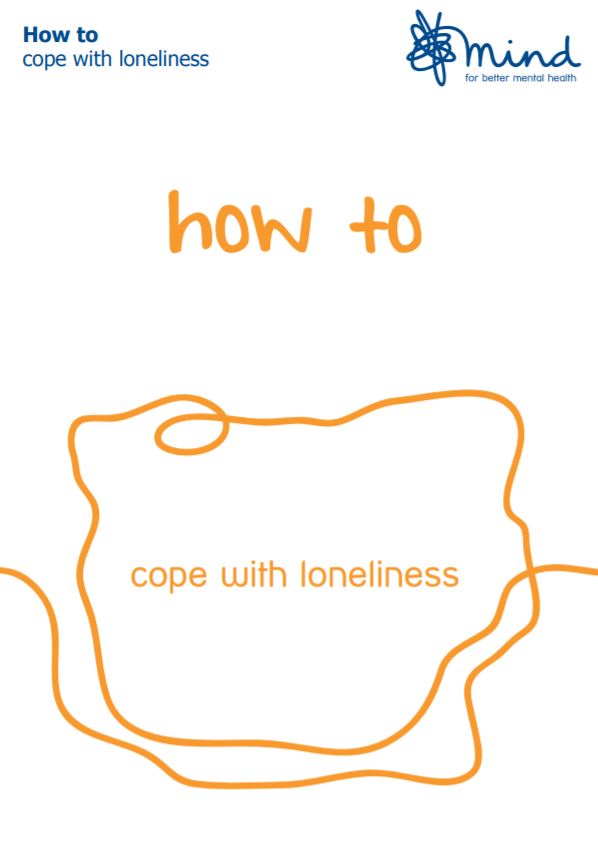
Mind, UK
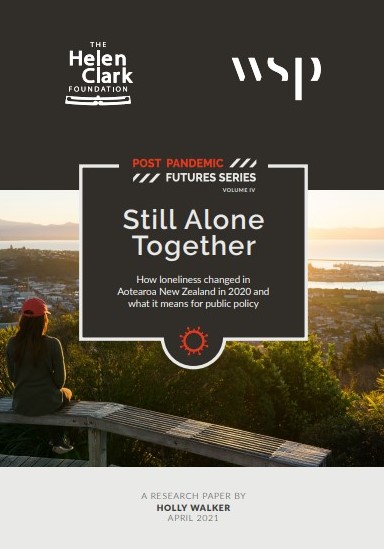
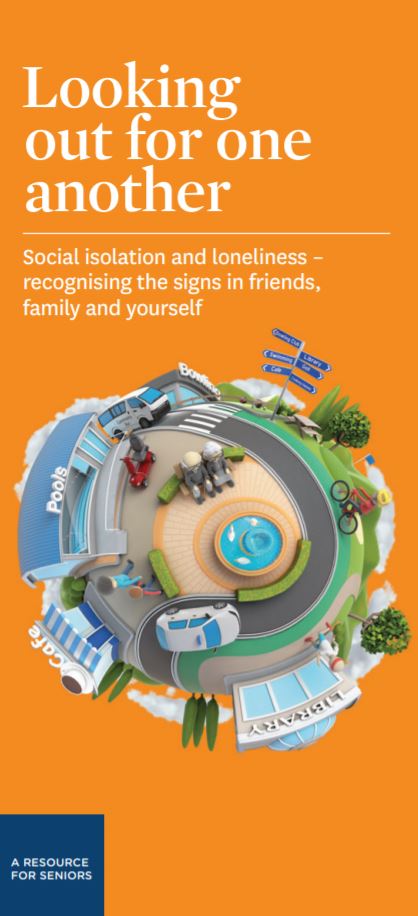
Office for Seniors Te Tari Kaumātua, NZ
Credits: Healthify editorial team. Healthify is brought to you by Health Navigator Charitable Trust.
Reviewed by: Emma Sutich, Clinical Psychologist
Last reviewed:
Page last updated:





